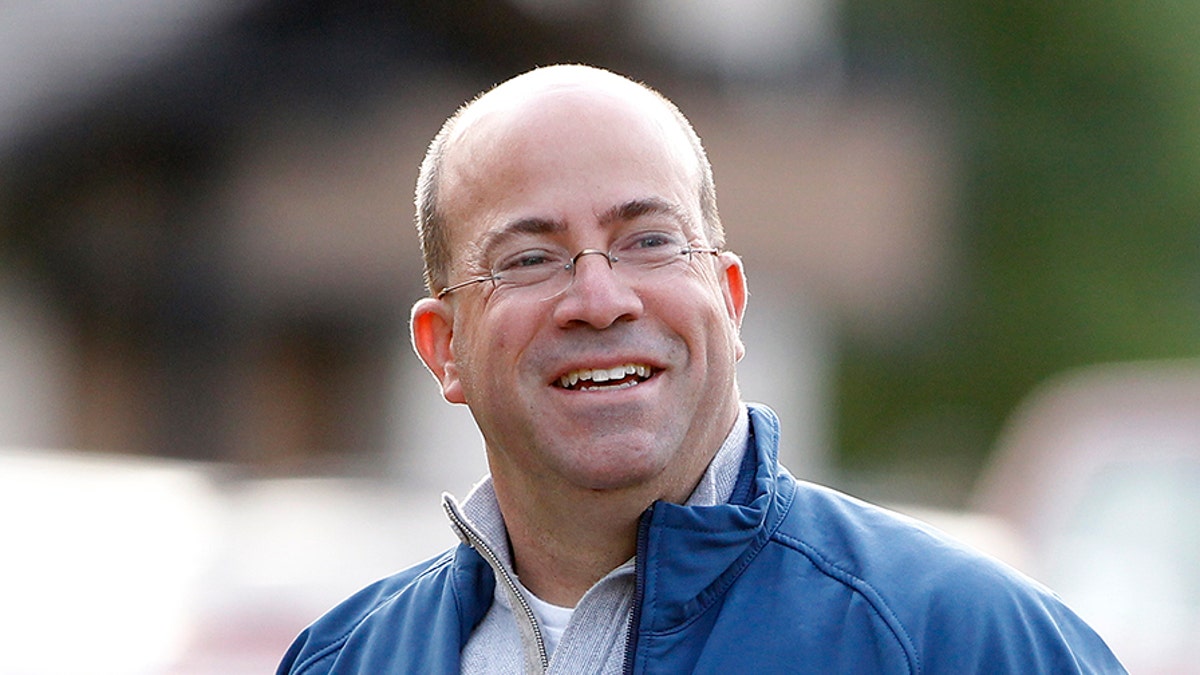
Jeff Zucker arrives at the Simon Wiesenthal Center's 2010 Humanitarian Award Ceremony honoring producer Brian Grazer and director Ron Howard in Beverly Hills, California May 5, 2010. (REUTERS/Danny Moloshok)
President Trump’s Justice Department is reportedly mulling an antitrust challenge to AT&T’s proposed $85 billion purchase of Time Warner, a move that could put Trump-bashing CNN boss Jeff Zucker on the hot seat.
Time Warner has owned CNN, as well as HLN, TBS and other cable networks, since 1996. If approved, the Time Warner-AT&T deal would put AT&T in charge of a network that, under Zucker, has unabashedly pursued an anti-Trump agenda. Trump has fought back, calling CNN "fake news" and criticizing the network and its top news personalities in tweets and in person.
The New York Post reported in June that AT&T was considering making changes regarding CNN’s President Jeff Zucker if the deal went through.
“There was early talk about the way Zucker managed that wasn’t a good fit for the new organization,” a source told the Post. “They were eyeing ways to neutralize him.”
AT&T CEO Randall Stephenson delivered a mixed message about the future of CNN under potential new ownership.
“We’re paying a premium to get Time Warner, and when you pay a big premium, the priority is to not screw it up… CNN’s doing quite well, and the priority is to keep management teams in place,” Stephenson said last month at Vanity Fair’s New Establishment Summit. “There will invariably be changes, but the hope is to keep the team in place.”
President Trump said on the presidential campaign trail last year that he was against deal, which would make AT&T the largest media company in the U.S. Trump called the proposed merger "a deal we will not approve in my administration because it's too much concentration of power in the hands of too few."
WSJ reported the Justice Department’s antitrust division is preparing for a lawsuit and also discussing possible settlements to attach conditions to the deal that would garner it governmental approval. The newspaper reports things could go either way.
The possibility of selling CNN off to gain approval has been dismissed by AT&T honchos, but WSJ reports that the traditional way for merging companies to address government antitrust concerns is to sell off assets. WSJ reported that it wasn’t clear what assets might be sold off, or even if the Justice Department had any particular assets in mind.
A spokesperson for the company told the paper, “Vertical mergers like this one are routinely approved because they benefit consumers without removing any competitor from the market. While we won’t comment on our discussions with DOJ, we can say that this transaction should be no exception.”






